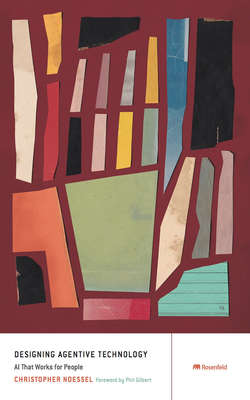Читать книгу Designing Agentive Technology - Christopher Noessel - Страница 43
На сайте Литреса книга снята с продажи.
They Will Allow Play . . .
ОглавлениеIn some domains, users are happy to let the agent run, and only think about it when there’s a problem. Managing a long-term investment portfolio is one where you specifically don’t want to look at it every day. But in other domains, you’ll need to recognize that users will still want to play.
Here I’m thinking of iOS AutoCorrect. (It’s closer to assistive tech, but is still an instructive example for our purposes here.) In this low-level typing function, if users mistype a word (or correctly type an unusual word that is not in its dictionary), the operating system will offer to replace the word with its best guess of the intended word. Spell-checks have been around almost since the beginning of computers, but AutoCorrect has two differences. First, the interaction design is such that most of the time, people don’t realize their words have been autocorrected until after they’ve sent text messages or made status updates. Second, being on a mobile OS with an on-screen keyboard means there are plenty of mistakes to be corrected.
Most of the time, AutoCorrect works pretty seamlessly, changing people’s mitsakes to mistakes before they realize they’ve happened. Some of the time the corrections are nonsensical. And a few times they can be genuinely funny.
But if you are a playful user of language, AutoCorrect is much more of a damned nuisance than a help. There’s a whole philosophical tangent I’ll avoid about why being a playful user of language is important at any age, but even if you’re personally prudish with your words, note that it’s a fact of teenage life and part of the currency of subcultures. It’s a way to create and celebrate a shared identity. Consider the recent popularity of “turnt,” “bae,” “yas,” and “nudnik.” OK, that last one is from the 1920s, but a flapper with an iPhone, can you imagine? Since both declining the autocorrections and adding to its dictionary slow your text entry down significantly, it’s much easier to just turn the feature completely off. Better would be an agent that gauges your degree of playfulness, or updates itself with language trends of your peers, and backs off accordingly.
(Note that we are on the second edition of Damn You Auto Correct compilations from the blog of the same name, so it’s kind of a thing.)
